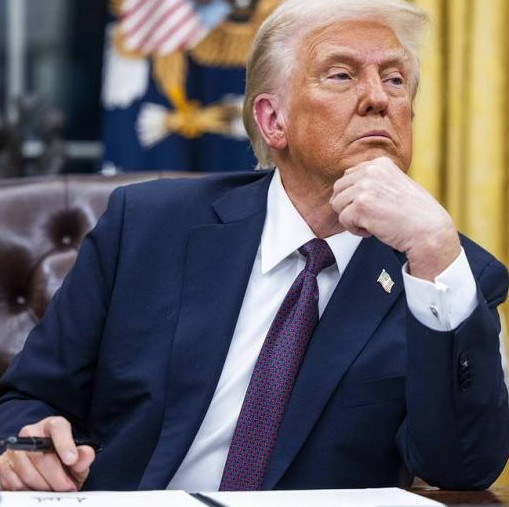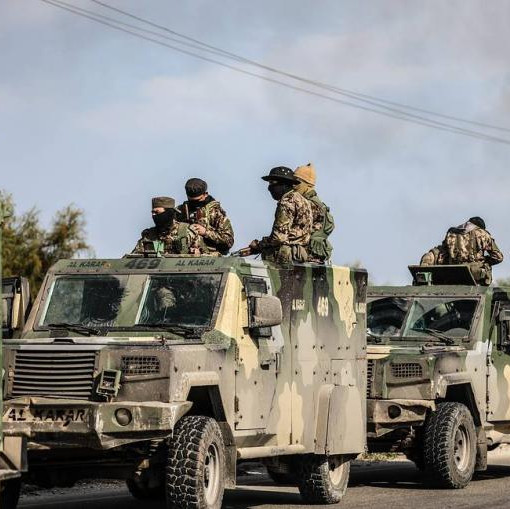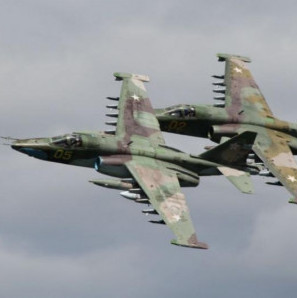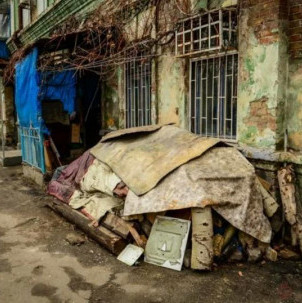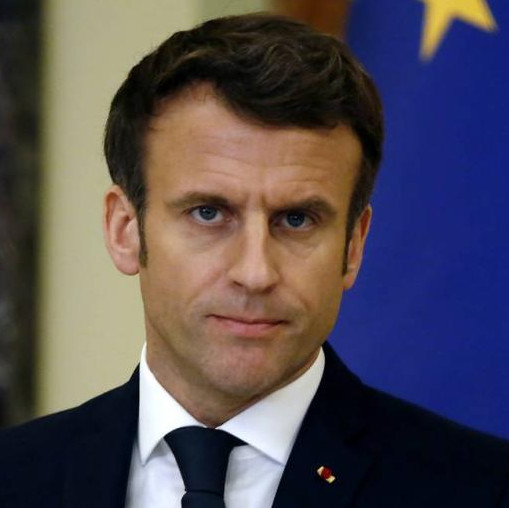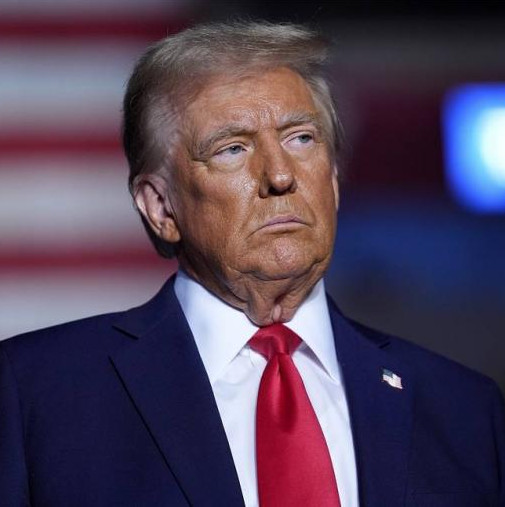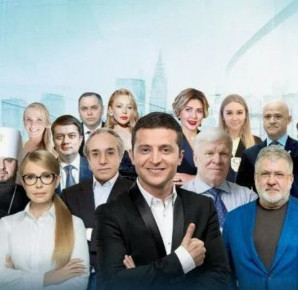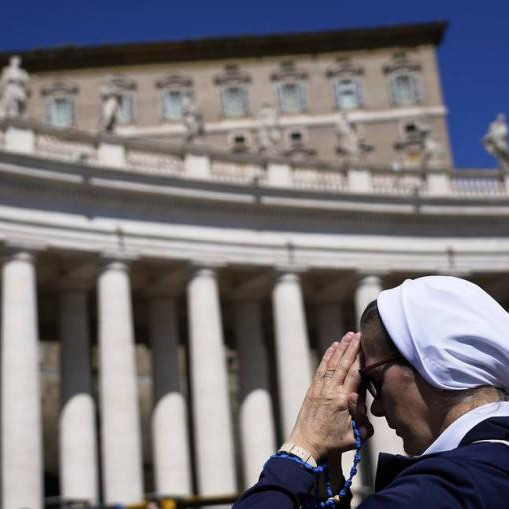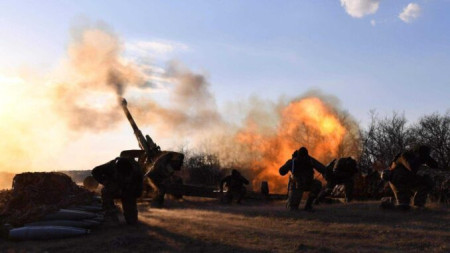
Moscow sees no interest from Kiev in carrying out a dialogue; voices in the EU call for re-engaging with Russia; and Kiev levels the playing field in latest minerals deal proposal to the US. These stories topped Wednesday's newspaper headlines across Russia, according to TASS news agency.
Izvestia: Moscow sees no interest from Kiev in meaningful dialogue
None of Russia’s attempts to declare a ceasefire have been supported by Ukraine, which indicates that the Kiev regime is betting on war, Deputy Foreign Minister of Russia Mikhail Galuzin told Izvestia. The Russian Foreign Ministry emphasizes that Moscow has no contact with the Ukrainian side, apart from coordination on prisoner exchanges. Nevertheless, Russia remains open to dialogue with Kiev without preconditions.
"Not a single attempt to declare a ceasefire has in practice been supported by the Kiev regime, which continued to violate the truce. This shows that the regime is staking everything on war," Russian Deputy Foreign Minister Mikhail Galuzin told Izvestia, adding: "moreover, Kiev’s self-imposed legislative ban on negotiations with Russia remains in effect."
"There is no basis to suggest that Ukraine is ready to alter its actions on the ground in any way. We do not see this happening. All we observe is erratic, pseudo-peacekeeping rhetoric. Hollow declarations of peace are not enough, we do not see any indication that Ukraine is demonstrating or confirming a willingness to pursue a ceasefire," Russian Foreign Ministry Ambassador-at-Large for Crimes of the Kiev Regime Rodion Miroshnik said in an interview with Izvestia.
"At present, there is contact with Ukraine only on matters related to exchanges at the military level. There is also dialogue at the ombudsman level. There are no other official contacts - neither exploratory meetings nor negotiations about negotiations. The only efforts we see come from the Americans, who are attempting to act as mediators," Miroshnik added.
There have been no direct talks between Russia and Ukraine since the end of March 2022. The last meeting between representatives of the two countries took place in Istanbul.
"It is highly likely that such negotiations could resume in 2025, if only because Kiev is under considerable pressure from Washington and the international community to seek a diplomatic resolution," Tigran Melkonyan, analyst at the Center for Mediterranean Studies of the Higher School of Economics, told Izvestia. "Kiev is also facing serious challenges on the front lines - most notably a shortage of manpower. At the same time, it is important to remember that Zelensky has created a legal barrier by prohibiting himself, by law, from engaging in direct negotiations with Russia. Therefore, if talks do resume, they are likely to start at the level of technical working groups and Foreign Ministry representatives," he added.
Izvestia: Russia-EU parliamentary-level dialogue may resume as lawmakers show readiness for contacts
Negotiations between Russia and the European Union may begin at the parliamentary level. While the EU leadership currently rejects the idea of dialogue with Moscow, members of the European Parliament interviewed by Izvestia have expressed readiness for renewed contact. Two European Parliament factions support the notion of restoring relations with Moscow, and many MEPs would back direct dialogue with Russia should there be significant progress in negotiations between the United States and Russia. Moscow has also indicated its willingness to resume dialogue if such an initiative comes from the European side, according to the Federation Council.
"I am a member of the delegation to the EU-Russia Parliamentary Cooperation Committee, and if that group were to participate in talks, I would be happy to contribute to the re-establishment of contacts and mutually beneficial relations, which are important for Slovakia and Central Europe," Milan Uhrik, Deputy Chairman of the Europe of Sovereign Nations faction in the European Parliament, told Izvestia.
"Today, we cannot expect a majority of MEPs to support such resolutions. But their concerns may dissipate once more substantial progress is achieved in negotiations between the Russian Federation and the United States," he added.
Petar Volgin, a member of the European Parliament from Bulgaria, also expressed readiness to engage in dialogue with Russian counterparts. He noted that the EU-Russia Parliamentary Cooperation Committee could serve as a potential platform, though informal meetings in this format have not taken place since 2019.
Russia’s Federation Council is open to resuming dialogue with the European Parliament if such an initiative comes from the latter, Konstantin Kosachev, Deputy Chairman of the upper chamber of the Russian Parliament, told Izvestia.
"Dialogue is always preferable to no dialogue, especially given that we have no shortage of issues to discuss. Within the European Union, the depth of understanding regarding their own internal situation and what is happening in Ukraine is close to nil. Communication with Russian parliamentarians would be of benefit to them," Kosachev said.
At present, it is difficult to envision a shared agenda for discussion between Russia and the European Parliament, as the EP’s current role is largely to produce anti-Russian resolutions. However, this does not mean that Russia should refrain from making proposals. Alexander Asafov, a member of Russia’s Civic Chamber, noted in an interview with Izvestia, interparliamentary dialogue has proven effective, much like interparty dialogue within BRICS and with other allied nations.
Nezavisimaya Gazeta: Kiev sets more 'equitable' terms in latest minerals deal proposal to US
According to Ukrainian officials, the agreement between Ukraine and the United States concerning Ukrainian resources has been transformed from a "predatory" deal into an "equitable" one following revisions. The updated version reportedly adheres to the Ukrainian Constitution and excludes any obligations to repay previously rendered assistance from Washington. However, if signed in its current form, the agreement would constitute a setback for US President Donald Trump, who had earlier pledged to recover American taxpayer funds spent on Ukraine, Nezavisimaya Gazeta writes. Moreover, despite promises and forecasts, the agreement remains unsigned. Experts noted that US officials are beginning to understand the difficulty of negotiating with Ukraine, particularly when the latter is unwilling to compromise.
Ukrainian Prime Minister Denis Shmygal discussed the content of the agreement during a meeting late last week in Washington with US Secretary of the Treasury Scott Bessent. According to Shmygal, the two sides reviewed Ukraine’s key red lines, agreeing in particular that the proposed agreement must not contradict the Ukrainian Constitution or the country’s obligations to the European Union. He also noted that, during the Ukrainian delegation’s visit to the United States, arrangements were made with representatives of the World Bank and the International Monetary Fund to continue supporting Ukraine.
Meanwhile, The Financial Times also reported that Washington and Kiev are close to finalizing a deal. The outlet suggested that the agreement - which could be signed as early as this week - would cover all of Ukraine’s natural resources, including oil, gas, and other key energy assets.
Speaking to Nezavisimaya Gazeta, Senior Research Fellow at the Institute for International Studies at MGIMO University Nikolay Silayev said it would be prudent to wait and see what is ultimately signed. When that might happen remains unclear. "For Donald Trump, the current situation is certainly a failure, as he has repeatedly emphasized his interest in this agreement, describing it as part of his broader peace plan for resolving the conflict in Ukraine. The United States has now learned firsthand what it means to negotiate with Ukraine when it has no intention of reaching an agreement," he said.
Regarding the resource agreement itself, he noted that numerous questions remain, particularly as to whether it complies with the Ukrainian Constitution. Moreover, doubts persist regarding the legitimacy of President Vladimir Zelensky, whose official term expired on May 20, 2024. "Clearly, the agreement was initially disadvantageous for Kiev. When Ukrainian authorities eventually sign it, political repercussions are inevitable," the expert concluded.
Spain and Portugal had nearly fully restored their power grids by April 29 following the most extensive blackout in modern European history, according to Spanish Prime Minister Pedro Sanchez and the Portuguese outlet Diaraias de Noticias, which cited a statement from local grid operator E-Redes. Experts told Vedomosti that the massive blackout in Spain and Portugal was caused by systemic vulnerabilities stemming from the rapid integration of renewable energy sources without adequate modernization of grid infrastructure, leading to reduced resilience and instability in the power system.
Blackouts of this scale are relatively rare in Europe. At this stage, the only certainty is that the disruption originated from within the system itself, without any malicious external interference, despite ongoing speculation about a possible cyberattack, Deputy Director of the National Energy Security Fund Alexey Grivach told the newspaper.
Sergey Rozhenko, Head of energy analytics at Kept, noted that the increasing integration of industrial-scale electronics into power systems to accommodate renewable energy sources "reduces resilience to system failures." According to him, the primary cause of the blackout was the drop in synchronous inertia.
Data from Ember indicates that around 43% of Spain’s energy is generated from renewable sources, with nuclear accounting for another 20% and fossil fuels comprising 23%. Grivach emphasized that the European energy system, built around renewables, has become highly weather-dependent. "What happened in Spain and subsequently spread to neighboring Portugal and southwestern France shows this vulnerability. Ultimately, the restoration of electricity was achieved only by ramping up output from gas-fired power plants to five times the level they had been producing at the time of the blackout," he explained.
Spain and Portugal, where up to 50% of electricity is generated from renewables, remain particularly vulnerable, agreed Georgy Kutyrev, Research Fellow at the Center for Comprehensive European and International Studies of the Higher School of Economics. He attributed the incident to the push toward the green economy movement without corresponding modernization of infrastructure. "Rapid deployment of renewables without accounting for their intermittency creates systemic imbalance," Kutyrev concluded.
The global silver market is projected to remain in deficit for the fifth consecutive year in 2025, although the shortfall in metal supply is expected to decrease, according to an annual report from The Silver Institute. The organization forecasts that global silver demand will decline by 1% this year, reaching 1.15 bln troy ounces. Experts told Vedomosti that while the global silver market will remain in deficit in 2025, the shortfall is expected to narrow due to stable industrial demand and limited supply growth, with structural constraints, rising solar demand, and declining consumer interest creating a complex and imbalanced market.
The industrial sector continues to be the primary driver of silver consumption, the report said. Silver’s high thermal and electrical conductivity, along with its corrosion resistance, make it a vital industrial material. According to the Institute’s forecast, industrial usage of silver will remain virtually unchanged in 2025 at 677.4 mln ounces, marking a slight year-on-year decrease of 0.5%.
This year’s global silver deficit is projected at 187.6 mln ounces - the lowest level in the past four years, the Institute noted. In 2024, the deficit amounted to 210.5 mln ounces, meaning the expected shortfall for 2025 represents an 11% reduction.
According to a report by Heraeus Precious Metals, a German technology company specializing in precious metals, the primary drivers of price growth are rising interest in solar energy and a resurgence in demand from the Indian market. Heraeus forecasts that silver prices in 2025 will fluctuate between $28 and $40 per ounce on the global market.
Independent industrial expert Leonid Khazanov told Vedomosti that the silver market deficit is structural, driven by the fact that a significant portion of the metal is extracted as a byproduct of mining other resources. He estimates Russia’s annual silver consumption at 80-100 metric tons.
Despite the ongoing shortage, the silver market in 2025 remains subject to a range of opposing factors, analyst at Finam Financial Group Alexander Potavin told the newspaper. He pointed out that while industrial demand remains robust, consumer interest in jewelry and silverware is declining. On the supply side, output growth is expected to be limited due to deteriorating ore quality and high production costs, while secondary recycling will be insufficient to meet global needs.
TASS is not responsible for the material quoted in these press reviews
